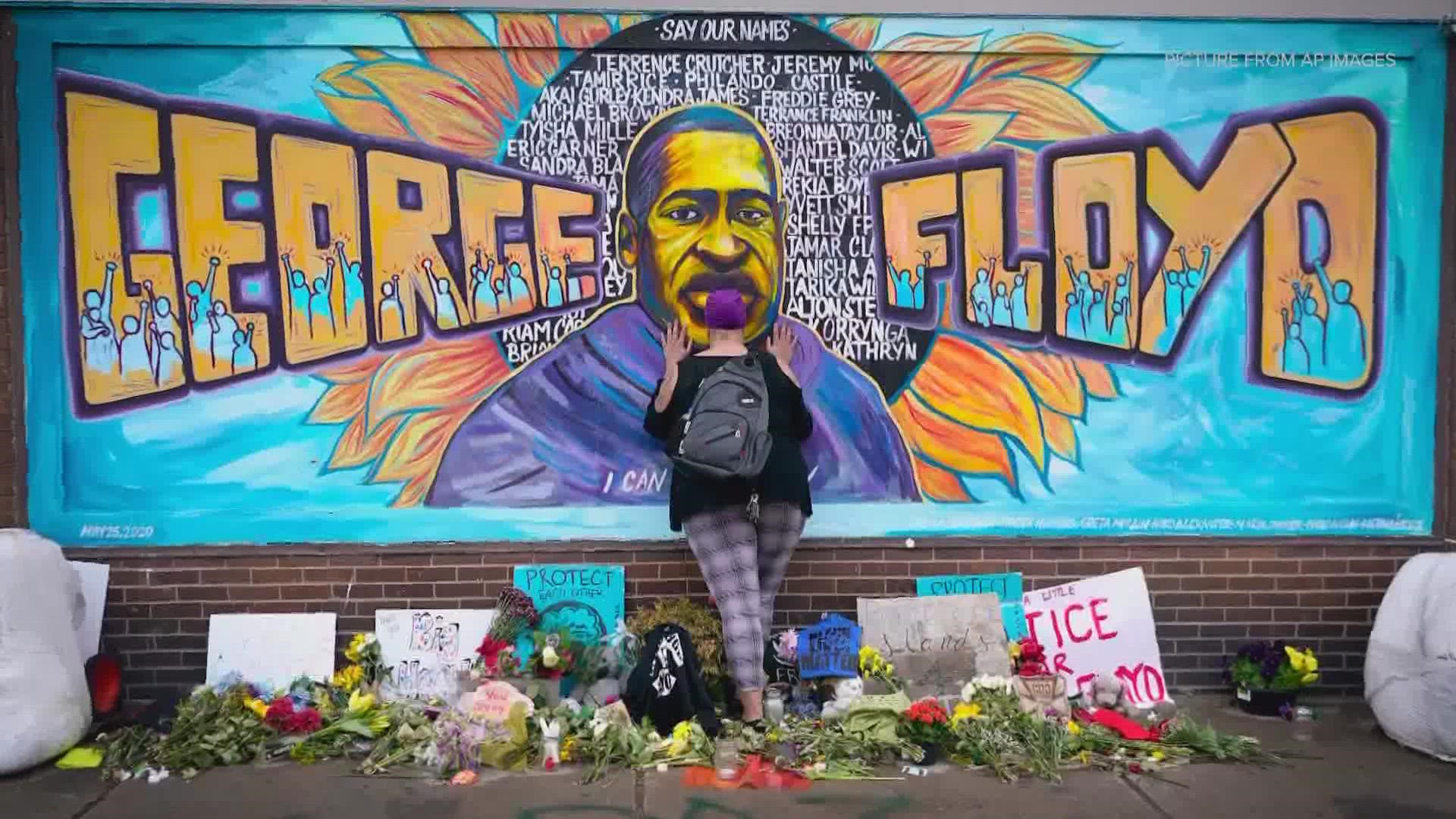Editor's note: The above video on Black leaders saying racial reckoning didn't go far enough after George Floyd's death originally aired May 25, 2022.
SEATTLE (AP) — A person’s race and ethnicity must be taken into account when deciding whether they were free to leave an encounter with police, the Washington Supreme Court said Thursday in its latest decision seeking to counteract bias in the justice system.
The unanimous ruling concerned Palla Sum, a man identified in court records as Asian Pacific Islander. When a Pierce County sheriff's deputy found him sleeping in his car in Tacoma in 2019, Sum gave a false name and birth date, drove off as the deputy was checking for warrants, and crashed in someone's front yard.
Whether Sum was free to leave when he did was a key point in his case.
At his trial, he sought to suppress evidence of his false statements, saying they were made only after the officer detained him by implying that he was under investigation for car theft. In reality, the car was not stolen, and the officer had no reason to detain him until after he sped off, the justices said, meaning the initial detention was unlawful and a lower court judge should not have allowed evidence of the false statements at trial.
While the court might have reached the same conclusion in the case of a white defendant, it used the case to emphasize that people of color have different experiences with law enforcement, as borne out by data showing that police have long disproportionately arrested and used force against Black people and other minority groups.
Because of those experiences, they might have different perspectives regarding whether they are free to leave an encounter with officers. This makes minority status one factor in determining whether a person has been “seized” by law enforcement, the court said.
“Today, we formally recognize what has always been true: in interactions with law enforcement, race and ethnicity matter,” Justice Mary Yu wrote. “Therefore, courts must consider the race and ethnicity of the allegedly seized person as part of the totality of the circumstances when deciding whether there was a seizure.”
Some other courts have recognized that race and ethnicity are among the factors that can determine whether a police interaction rises to the level of a seizure. The 7th U.S. Circuit Court of Appeals, which covers Illinois, Indiana, and Wisconsin, has held that race is “not irrelevant” in such determinations, and the New Hampshire Supreme Court in 2020 ruled that “race is an appropriate circumstance to consider.”
The decision Thursday did not affect Sum's convictions for attempting to flee police and unlawful possession of a firearm, which he did not challenge. While the state’s attorneys agreed that race and ethnicity can be considered in determining whether someone is free to leave a police encounter, they said race wasn’t relevant in Sum’s case and that an officer asking for his identification did not amount to a detention.
“Unfortunately, this decision will likely further confuse law enforcement officers about their interactions with the public," Pierce County Prosecutor Mary Robnett said in an emailed statement. "Police officers and trial court judges, especially, are facing some confusing and uncertain times ahead as they try to correctly apply the court’s ruling.”
The ruling was the latest in a series of actions by Washington's justices to counteract implicit and sometimes explicit bias in the justice system. The court previously singled out racially biased prosecutorial misconduct for heightened scrutiny on appeal, struck down the death penalty in the state because it had been applied in an arbitrary and racially disproportionate manner, and adopted a first-in-the-nation rule aimed at improving the racial diversity of juries.
That rule forbids prospective jurors from being dismissed without cause if “an objective observer" — one aware of the effects of institutional or implicit bias, in addition to purposeful racism — "could view race or ethnicity as a factor” in the dismissal.
The state Supreme Court adopted similar language in its decision Thursday, saying that whether someone's interaction with law enforcement escalates from a conversation to a “seizure” is based on what a similar objective observer would think.
Civil rights and public defense organizations praised the ruling. The King County Department of Public Defense, American Civil Liberties Union of Washington and the Korematsu Center for Law and Equality at Seattle University School of Law filed a friend-of-the-court brief urging the justices to side with Sum.
Ruling for Sum recognizes that people of color have long faced excessive policing in the U.S. and sometimes find it necessary to over-comply with law enforcement as a survival strategy — and not feel free to leave in a situation where a white person might, the groups argued.
“We are pleased that the court has recognized the lived experiences of our clients and the significant harms they face due to racialized policing," Anita Khandelwal, director of the King County Department of Public Defense, said in an emailed statement. “It’s not often that our clients have their truths lifted up in this way.”
Download our free KING 5 app to stay up-to-date on news stories from across western Washington.

